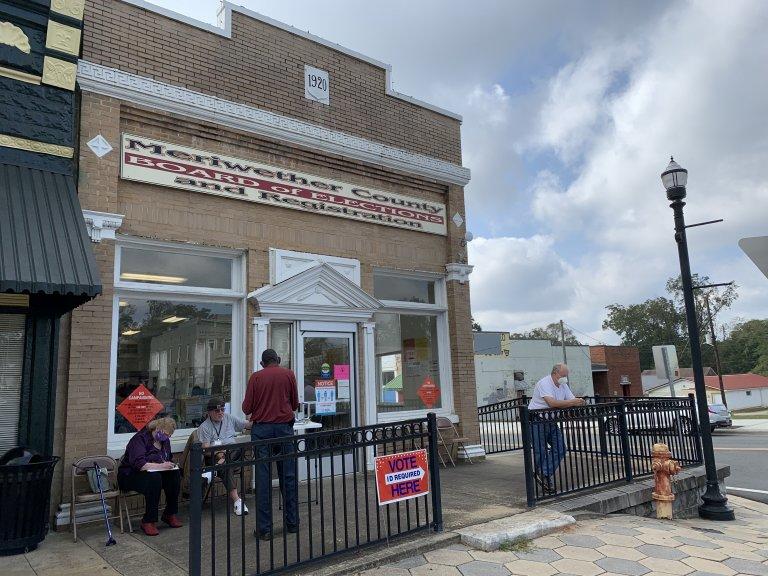
Caption
A voter signs in to cast a ballot at Meriwether County's lone early voting location in downtown Greenville. The top Democrat in the Georgia House is defending his seat representing a district about an hour south of Atlanta against a big-spending campaign waged by state and national Republicans.
Credit: Jill Nolin/Georgia Recorder




